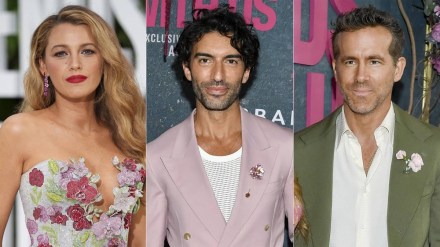In a dramatic escalation of the legal fallout surrounding the film It ends with us, actor -director Justin Baldoni has filed a $400 million lawsuit against co-star Blake Lively and her husband, Ryan Reynolds. As per the lawsuit, which is filed in a New York federal court, accuses the couple of defamation, extortion and barging into the film’s marketing and production. Baldoni and Wayfarer Studios have blamed that Lively and Reynolds staged a campaign, including falsely accusing of harassment, to harm his reputation and hijack the project.
Allegation of misconduct
The suit alleges that Lively and Reynolds used their contacts to undermine Baldoni’s role in production and later blamed him when their expectations for acclaim fell short. Baldoni stated that Lively’s accusations of harassment which she has brought up in a separate lawsuit are baseless. According to Baldoni, Lively has wrongly identified moments of professional interaction like breastfeeding during meetings and discussions related to her weight regarding stunts to present him in a negative light.
Claims like Lively’s requests for intimacy coordinators during sensitive scenes were disregarded, Baldoni’s lawsuit addresses these concerns too. He rejects these claims and mentioned that all her requests were taken care of. The suit further accuses Reynolds of escalating tensions, he insulted Baldoni and persuaded their shared talent agency WME to end ties with him.
In return, Lively’s legal team described Baldoni’s lawsuit as a classic example of DARVO-Deny, attack, reverse victim and offender. They asserted that Baldoni’s legal action is an attempt to dishonour Lively and all other crew members who have faced similar issues. Lively’s attorneys mentioned that the evidence of harassment and retaliation is strong and will be observed very carefully.
The legal battle which followed the release of the film based on Colleen Hoover’s novel has drawn wider discussions in Hollywood about the treatment of female actors on set. As both sides are all set face off in court, the case continues to attract intense public attention.
(With inputs from AP)
